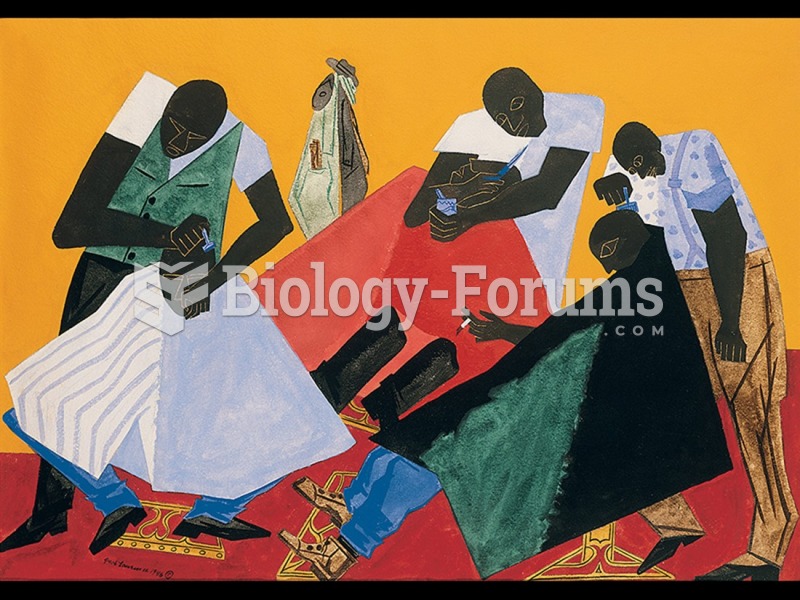|
|
|
Patients who have undergone chemotherapy for the treatment of cancer often complain of a lack of mental focus; memory loss; and a general diminution in abilities such as multitasking, attention span, and general mental agility.
The lipid bilayer is made of phospholipids. They are arranged in a double layer because one of their ends is attracted to water while the other is repelled by water.
Over time, chronic hepatitis B virus and hepatitis C virus infections can progress to advanced liver disease, liver failure, and hepatocellular carcinoma. Unlike other forms, more than 80% of hepatitis C infections become chronic and lead to liver disease. When combined with hepatitis B, hepatitis C now accounts for 75% percent of all cases of liver disease around the world. Liver failure caused by hepatitis C is now leading cause of liver transplants in the United States.
Alcohol acts as a diuretic. Eight ounces of water is needed to metabolize just 1 ounce of alcohol.
A good example of polar molecules can be understood when trying to make a cake. If water and oil are required, they will not mix together. If you put them into a measuring cup, the oil will rise to the top while the water remains on the bottom.
 A tracheotomy tube in place, inserted through an opening in the front of the neck and anchored withi
A tracheotomy tube in place, inserted through an opening in the front of the neck and anchored withi
 Many gasoline service stations have signs posted warning customers to place plastic fuel containers ...
Many gasoline service stations have signs posted warning customers to place plastic fuel containers ...
 Passive touch in center of abdomen as finishing technique. Place a hand gently in the center of the ...
Passive touch in center of abdomen as finishing technique. Place a hand gently in the center of the ...




